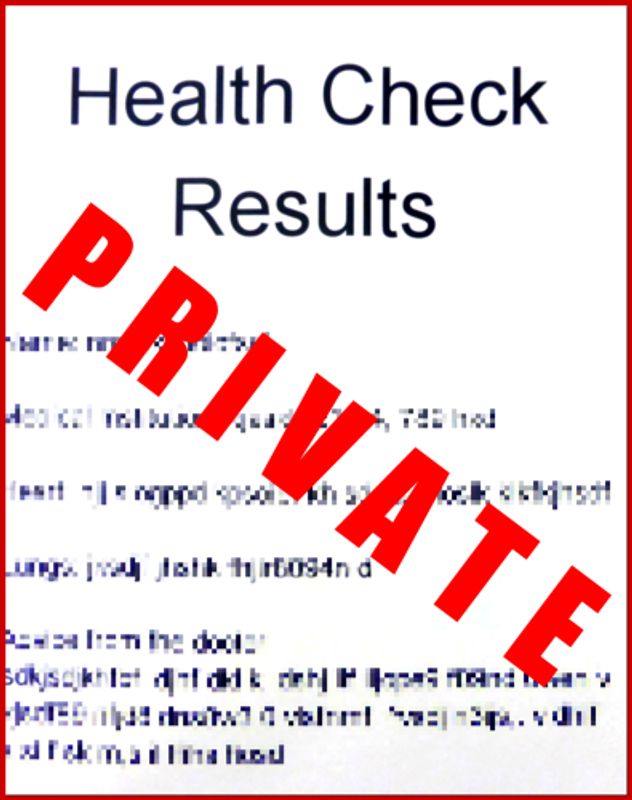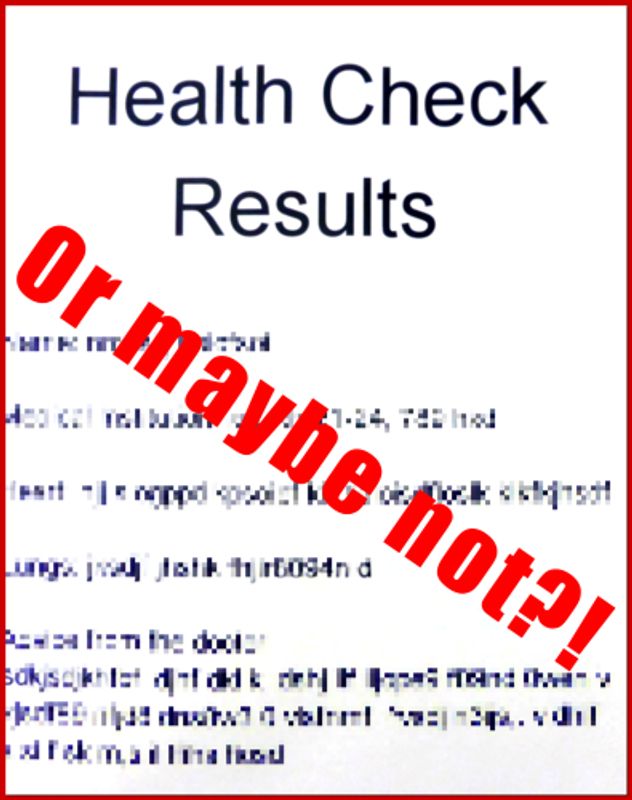Jul 3, 2015
The Kenko Shindan/Health Check In Japan: Is It Mandatory?

In our earlier article, Kenko Shindan - The Japanese Health Check, we broke down the process of getting through an annual health check at work.
Whilst some people welcome the prospect of a poke and prod on the company's money, for many, being ordered by the suits to the hospital remains something of a sore point. These things should be optional, shouldn't they? Well, that's a debate for another time (and possibly another country). What we're concerned with here is … The kenko shindan/health check in Japan: Is it mandatory?
Why are we asking anyway?
When articles cover the ins and outs of a Japanese health check, the term mandatory often appears dressed up in quotation marks or italics, as if there are different interpretations of the word. But surely mandatory is, well, mandatory. We either have to have a health check or we don't? Part of the mystery perhaps stems from a reluctance to accept the fact that a health check could possibly be so. It seems too intrusive.
What does the law say?
On the surface at least, the law states that we have to. Cast your eye on the links below ...
The first link (here) is a translation of Japan’s Industrial Safety and Health Act (in place since 1972), provided by the Japan International Center for Occupational Safety and Health. JICOSH is now defunct. Their archive/history is available from the Japan Industrial Safety and Health Association.
Chapter VII ‘Measures for Maintaining and Promoting Workers’ Health’, Article 66 (5) begins …Workers shall undergo the medical examination conducted by the employer... . It goes on to establish, however, that such a check need not be conducted by the medical professionals chosen by the employer.
Here is the same document, translated by Japanese Law Translation.
This link leads to an English-language summary of labour law 'highlights' provided by the government's Ministry of Health, Labour and Welfare. See ‘Q&A, No.5 page 7’ which concludes with the line … Workers must therefore undergo medical examinations as prescribed by law.
Whilst the message seems to be clear, health checks are mandatory, there are a couple of caveats. One is that the language of these texts (the English versions) is staggeringly dull and presumes an understanding/tolerance of legal terminology that this writer doesn't have. The bigger caveat though, is that none of these translations are official. Only the Japanese originals carry the weight of the law.
What none of these resources legislate for are instances where companies are not ordering their staff to have medical checks, or where staff simply refuse to do them.
You’ll find in Japan, companies that make no mention of health checks, companies that enforce them and force employees to pay, and those that play it by the book.
A couple of rumours; only companies with X amount of staff need provide health checks (a bit like the requirement for provision of Social Insurance/shakai hoken/社会保険). The other, whilst there are laws in place mandating companies to provide health checks (and for staff to take them) there is no legislation determining punishment for those that refuse. So, in a sense, who cares?

But what's the problem? A free health check is a good thing, isn't it?
Well, some people embrace them, others don't like to go anywhere near hospitals unless they have to. Whichever camp you fall into, you're still vulnerable to a couple of problems. One is that you might end up at a cash-strapped medical institution that will try and find something wrong with you so as to have you return and pay them more money to poke around further. The other is the question of what happens to the results of your medical check.
Privacy
A problem many foreigners face is that these medical reports are usually written up in Japanese. So, regardless of any privacy law, you may have to show it to others just so as you can understand it.
A Cautionary Tale
Company A sends its staff, most of whom are foreign, for annual health checks. The clinic issues a ‘privacy’ form written in Japanese. Nobody understands it and interpretations are not clear, so most staff just fill the form out as advised. The check is taken and results posted to the office two weeks later. Everything seems to be fine, a couple of improvements to be made here and there, but nothing serious to worry about. Six months later, said members of staff turn up to work to find a letter on their desks, again in Japanese. Nobody has a clue so other people are consulted to translate. It’s from an otherwise unknown department somewhere in head office. The letter states that the clinic has been in touch (with who, exactly?) and requires staff to go back in for further checks, out of their own pocket. There’s a deadline by which they have to return to the clinic. Nobody knows what the problem is (it’s not stated), nor do they have any idea who has been privy to their health check records. Needless to say they look panicked, and now everyone in the office knows something might be wrong with their health. Is this the way it has to be?

Back to the Industrial Safety and Health Act, Article 66-3; The employer shall, according to the Ordinance of the Ministry of Health, Labour and Welfare, record the results of medical examinations… .
Asking around further, it seems to be that if the employer is footing the bill, then they have a right to employee records. But then, even if employees did pay for it, you can bet your left kidney the employer will at least want some evidence of having been.
All in, this is perhaps not the news we were looking for. It seems the health checks are mandatory and we do have to disclose the results to the people upstairs. But hang on! There's a consultation service we can ask.
A Consultation Service
From June 1st, 2015, the Ministry of Health, Labour and Welfare set up a Telephone Consultation Service for Foreign Workers. The numbers and times are in the link (on the last page). Consultation is available in a range of languages.
We called them, and our questions were addressed in halting English. In answer to the question, the kenko shindan/health check in Japan: Is it mandatory? The answer was yes, for full time workers. They also confirmed that you are free to choose your own clinic. As for the question of what happens to the results, do we have to disclose them to the employer? Well, there was no answer. Just some hesitation (covering uncertainty or nerves, I don't know), and a reconfirmation that companies have to provide the check.
Where there are discrepancies, it may be due to a lack of lack of legislation in place to punish those who aren’t doing as they’re told. This is often the case in Japan (just ask the vast number of householders who don’t pay their NHK TV fees).
What is certain (and widely known) is that if you intend to work in the state school system, you will have to have a check for tuberculosis.
Footnote
An amendment was made to the Industrial Safety and Health Act on June 25, 2014, stipulating greater measures to protect employees' mental health. The details are still being discussed and any action won’t come into effect until December 2015. Such action looks to be in the form of mandatory mental health checks for some workers. Read more at the following links, here and here.
If you'd like to share any of your health check knowledge, worries or concerns, we welcome you to do so.
For more on state run health insurance, see our earlier article; Health Insurance In Japan.



1 Comment
SDGundamX
on Sep 11
Great article! Glad you went the extra mile to confirm they are mandatory by calling the help line. Guess I'm SOL in getting out of the ridiculous barium x-rays every year. I don't drink or smoke and have no family history of stomach cancer so I'm baffled why I need to do the stupidly uncomfortable test every year. But I'd rather do it at the company's expense than skip it and be forced to foot the bill myself later just to keep my job.